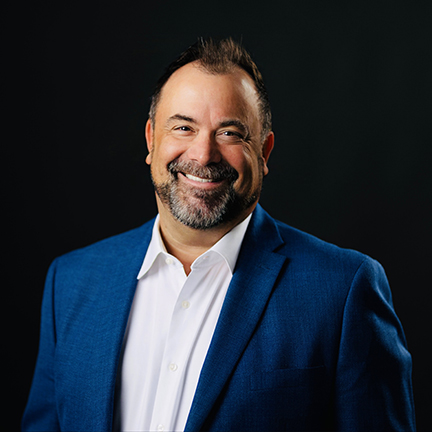
You’ve experienced the unimaginable, and it has left you reeling and uncertain how to proceed. There is a simple process to follow. The 8 things to do after a wrongful death include getting and preserving medical and legal evidence, learning whether you’re eligible to file, and seeking experienced legal counsel
The death of a loved one is always devastating, but when it occurs due to another party’s negligence or intentional actions, the grief is compounded by anger, confusion, and a sense of injustice.
Here are the 8 things to do after a wrongful death. For more information, contact a Tacoma wrongful death lawyer.
1. Get Medical and Legal Documentation Immediately
The first priority is obtaining official documentation. You’ll need a death certificate, medical records, and any police or coroner’s reports associated with the incident.
These documents are critical for establishing a timeline and cause of death and will become important evidence if a wrongful death claim is filed. Don’t delay in requesting this paperwork, and make copies for your personal records.
If the death occurred in a hospital, the staff should provide most of the paperwork. If it happened at the scene of an accident, contact the local police or emergency services department to obtain reports. Accuracy matters—look over everything to make sure no details are missing or incorrect.
For a free legal consultation, call (253) 238-2558
2. Preserve All Evidence
In the wake of a traumatic event, details can slip away quickly. Preserving evidence—whether it’s photographs of the scene, the deceased’s personal belongings, medical bills, accident reports, or correspondence—is vital. Even things that may seem minor at first can prove to be crucial later on.
Avoid altering or throwing anything away, and keep everything in a safe, organized location. If there are witnesses, gather their names and contact details before time causes memories to fade or people become unreachable.
3. Avoid Communication with Insurance or Opposing Parties Without Representation
After a wrongful death, you may be contacted by insurance companies, employers, hospitals, or even the person or company responsible for the incident. These parties are often looking to limit liability or offer a quick settlement. While it may seem like they’re trying to help, their interests are not aligned with yours.
Do not give recorded statements or sign any documents without first consulting an attorney. Even a seemingly casual conversation can be used against you. Protect yourself and your family by directing all communication through your legal representative.
Click to contact our personal injury lawyers today
4. Hire an Experienced Wrongful Death Attorney
Wrongful death cases are complicated. Whether the incident involved a car accident, medical malpractice, a workplace injury, or something more rare like defective products, having an experienced wrongful death attorney is essential.
They understand how to face the legal system, collect evidence, calculate damages, and negotiate on your behalf.
An attorney can help you file a wrongful death claim within the statute of limitations (which varies by state) and make sure that you don’t miss any critical deadlines. A good law firm will handle the legal burden so you can focus on healing.
Complete a Free Case Evaluation form now
5. Understand Who Can File a Claim
Not everyone can file a wrongful death lawsuit. The laws vary from state to state, but typically, the following individuals are allowed to initiate a claim:
- Spouse or domestic partner
- Children or stepchildren
- Parents (in some cases)
- A personal representative of the deceased’s estate
Your attorney will help clarify who is legally entitled to act, especially if there are disputes among family members or complicated estate issues involved.
6. Calculate the Full Scope of Damages
Compensation in a wrongful death case is not just about the loss of income. It can include:
- Medical and funeral expenses
- Lost future earnings and benefits
- Loss of companionship and emotional support
- Pain and suffering of the surviving family
These calculations are often underestimated by families trying to manage on their own. A skilled legal team may work with medical professionals and investigators to determine the full value of your claim.
7. Take Care of Yourself and Your Family
The legal process can be long and draining. Amid all the procedures and paperwork, don’t forget to prioritize your own well-being. Seek grief counseling, talk to family and friends, and take time off work if you can. Encourage children or other loved ones affected to express their emotions and seek help.
Emotional healing doesn’t happen overnight, but accessing support early can make a big difference. Your attorney may also connect you with local resources and support groups after a wrongful death.
8. Stay Informed, But Let the Professionals Work
Once you’ve hired a trustworthy legal team, you don’t have to manage every detail alone. That’s what they’re there for. Stay informed, ask questions, and remain engaged in the process—but allow your attorney to handle the heavy lifting.
That said, communication is key. Make sure you’re regularly updated on progress and that you understand your rights, options, and responsibilities as the case develops. Your peace of mind matters, and a good legal team will make sure you feel empowered throughout the process.
Call NextLaw to Discuss Your Wrongful Death Case
Now you’ve learned about the 8 things to do after a wrongful death. The aftermath of a wrongful death is overwhelming, but you don’t have to go through it alone. By securing documentation, preserving evidence, seeking legal support, and caring for your loved ones, you can begin to move forward with purpose and hope.
At NextLaw, we understand the emotional weight and urgency that follows a wrongful death. We’re available 24/7 to answer your legal claim questions and provide the compassionate support you need.
Visit our blog to learn more, and Call Dan Next for a free consultation.
Call or text (253) 238-2558 or complete a Free Case Evaluation form



